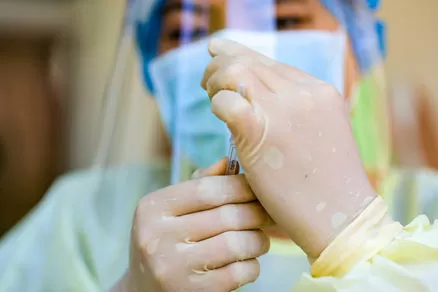In today’s interconnected world, where people and goods can travel across the globe in a matter of hours, the threat of pandemics has become a harsh reality. The recent COVID-19 pandemic has shown us just how vulnerable countries are when it comes to global health security. The virus has spread rapidly, causing widespread panic and disrupting economies around the world. This has highlighted the urgent need for cooperation and coordination among countries in preparing for and responding to pandemics.
The COVID-19 pandemic has exposed the weaknesses in our global health systems. Fragmented surveillance, underfunded laboratory networks, and unequal distribution of vaccines have all contributed to the rapid spread of the virus. This has not only resulted in loss of lives but has also had a devastating impact on the global economy. It is clear that in order to safeguard regional health security, we need to take immediate action and work together as a global community.
One of the key lessons from the COVID-19 pandemic is the importance of a strong and coordinated surveillance system. The ability to detect and track the spread of a virus is crucial in containing and controlling its spread. However, many countries lack the necessary resources and infrastructure to effectively carry out surveillance activities. This is where international cooperation becomes crucial. By sharing information and resources, countries can strengthen their surveillance systems and better prepare for future pandemics.
In addition to surveillance, laboratory networks play a crucial role in responding to pandemics. They are responsible for testing and diagnosing cases, which is essential in identifying and containing the spread of a virus. However, many countries, especially in developing regions, have underfunded and underequipped laboratories. This not only hinders their ability to respond to pandemics but also puts their healthcare workers at risk. It is imperative that developed countries provide support and resources to strengthen laboratory networks in developing regions. This will not only benefit those countries but also contribute to global health security.
Another challenge that the COVID-19 pandemic has brought to light is the issue of vaccine distribution. While vaccines have been developed in record time, their distribution has been far from equitable. Developed countries have been able to secure a large number of doses, leaving developing countries struggling to access them. This has not only raised ethical concerns but also poses a threat to global health security. As long as the virus is present in any part of the world, it remains a threat to everyone. Therefore, it is crucial that vaccines are distributed fairly and equitably among all countries.
To safeguard regional health security, it is not enough to just focus on one aspect of pandemic preparedness. Several health interventions must be treated as a priority. This includes investing in healthcare infrastructure, strengthening public health systems, and promoting research and development in the field of infectious diseases. All of these efforts require international cooperation and collaboration. No country can tackle a pandemic alone, and it is only by working together that we can build a stronger and more resilient global health system.
The COVID-19 pandemic has been a wake-up call for the world. It has shown us the devastating impact of a global health crisis and the importance of being prepared. As we continue to battle this pandemic, it is crucial that we learn from our mistakes and take concrete steps to strengthen global health security. This includes investing in healthcare infrastructure, improving surveillance and laboratory networks, and ensuring equitable access to vaccines. It also requires countries to work together and support each other in times of crisis.
In conclusion, the COVID-19 pandemic has highlighted the need for international cooperation in preparing for pandemics. It has shown us that in an interconnected world, no country is safe from the threat of a global health crisis. By working together, we can build a stronger and more resilient global health system that is better equipped to handle future pandemics. It is time for countries to put their differences aside and come together for the greater good of humanity. Only then can we truly safeguard regional health security and protect the well-being of people around the world.



